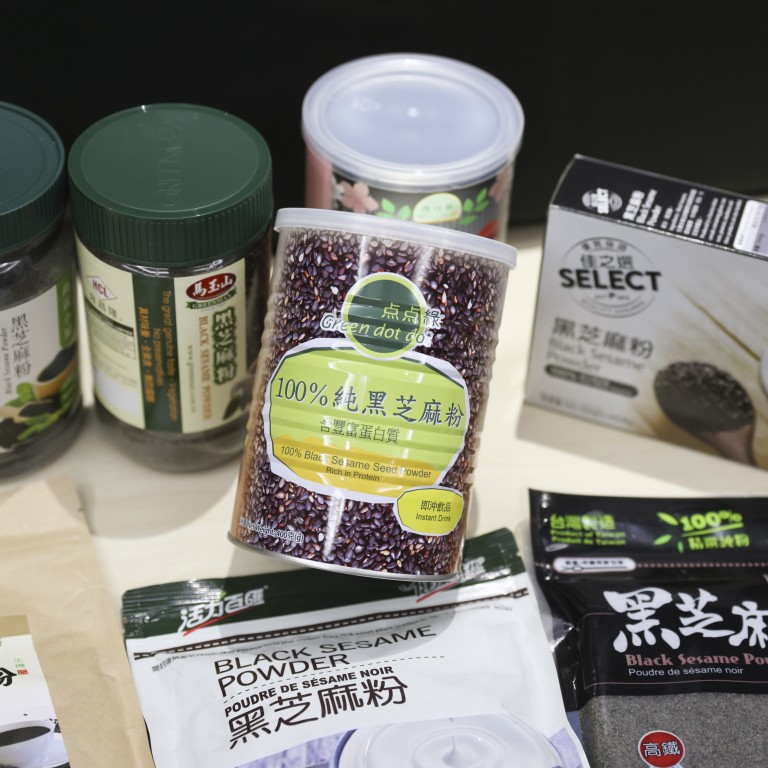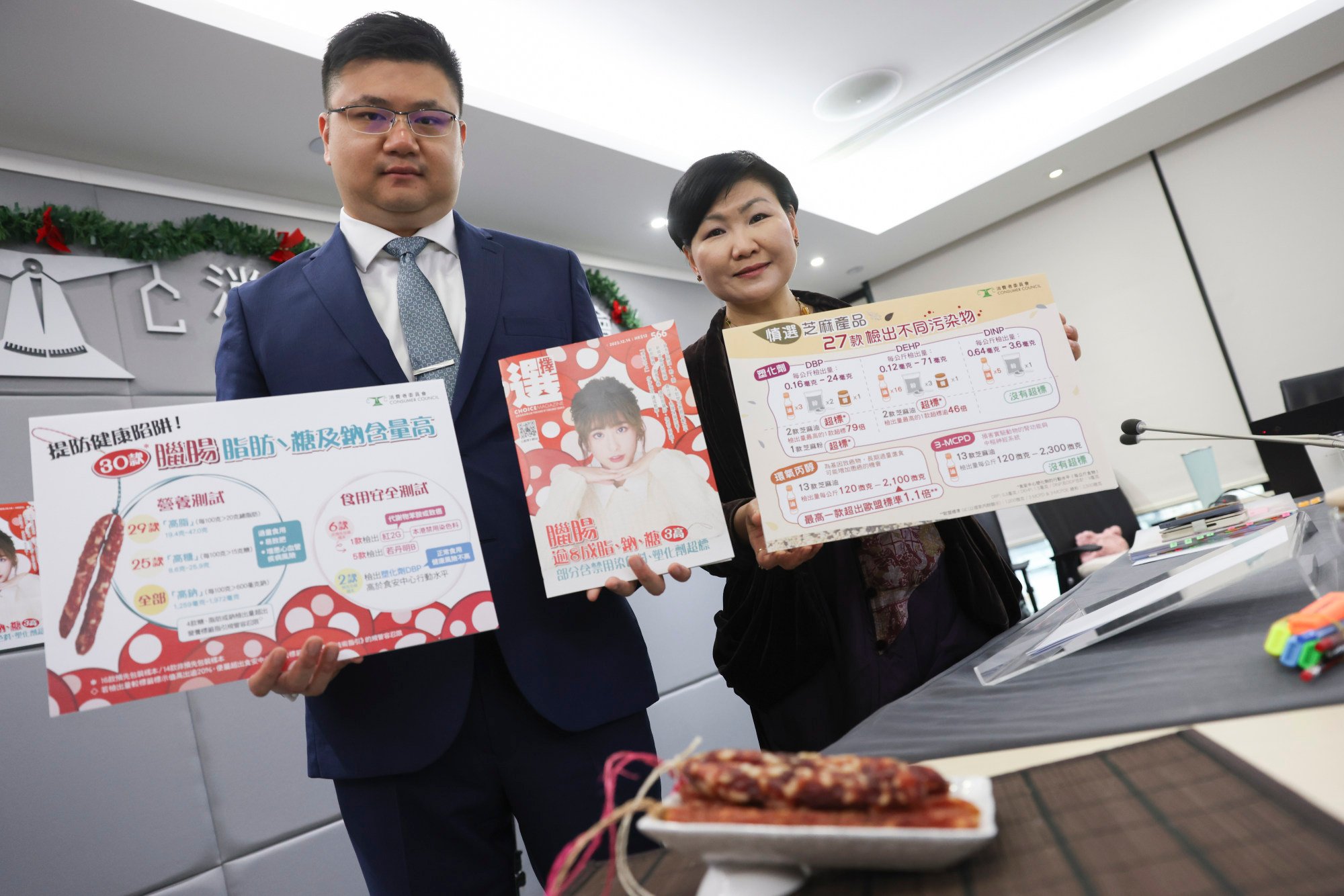
Hongkongers’ love of sesame may put health at risk, watchdog warns after high levels of plasticisers found in some brands
- Consumer Council finds excessive amounts of plasticisers in four out of 35 sesame products tested, including one with 79 times recommended level
- Prolonged absorption of additives used to soften plastics can affect reproductive system, liver and kidney, according to experiments conducted on animals
Hongkongers’ love of all things sesame might be putting their health at risk, the consumer watchdog has warned after finding excessive amounts of plasticisers in some popular brands, including one with 79 times the recommended level.
The Consumer Council on Thursday said that from the 35 samples of sesame products, including oil, powder and paste it had tested, plasticiser levels in four exceeded standards set by the Centre for Food Safety.
“Prolonged absorption of plasticisers can have possible impacts on the reproductive system according to experiments conducted on animals, and can affect organs such as the liver and kidneys,” said Kyrus Siu King-wai, chairman of the council’s publicity and community relations committee.

Sixteen samples were found to contain harmful contaminants – glycidol or 3-monochloropropane-12-diol – created during the high-temperature deodorisation processing of oils, with the level in one sample being higher than the European Union standard by 1.1 times.
Plasticisers are additives widely used to soften plastics. They are common in the and may also be found in food.
“Plasticisers exist in our environment, in the air, water and food,” said council chief executive Gilly Wong Fung-han, adding that plasticisers could be introduced through the manufacturing process, containers used to store products and transport.
“We advise the manufacturers to look into the manufacturing process to find out the exact answer,” she said. “They’ll have to go through step by step at every checkpoint to find out what areas went wrong.”
Cancer-causing toxins found in several suitcase brands: Hong Kong watchdog
The council tested 20 sesame oils, 10 powders and five pastes for levels of plasticisers, pesticides, nutrients and other contaminants. The survey found no clear correlation between price and product quality.
For the sample of Koon Yick Wah Kee Sesame Oil that exceeded the Centre for Food Safety standards by 79 times for one type of plasticiser and 46 times for another, consuming more than one tablespoon would exceed an adult’s tolerable daily intake set by the European Food Safety Authority.
Tung Chun sesame oil, Amoy black sesame oil and Green Dot Dot 100% black sesame seed powder also exceeded recommended levels set by the Centre for Food Safety.
The agents for Koon Yick Wah Kee and Amoy said they were following up with their suppliers, while the one behind Tung Chun planned to seek further tests and conduct an internal assessment.
Metal in your chocolate? Hong Kong consumer watchdog warns of cadmium traces
The seller behind Dot Dot Green said there was no remaining stock from the council-tested batch, but had immediately commissioned a third-party laboratory to conduct further tests and submitted data showing existing products under the same brand had not exceeded the required limit.
The watchdog found that 10 of the tested samples had discrepancies between nutrition labelling and actual content.
For example, the measured trans-fatty acids and saturated-fatty acids content of one sesame oil sample recorded a difference in quantity of 169 per cent and 112 per cent, respectively.
In a separate survey, the council also found plasticisers and banned colouring in Chinese preserved sausages, with all 30 samples containing high amounts of sugar, sodium or fat, despite labels claiming the products to be “lean” or “extra lean”.
Hong Kong consumer watchdog warns of heavy metals, pesticides in goji berries
“As plasticisers are soluble in oily substances, if fat-rich Chinese sausages come into contact with plastic materials during production and processing, it may result in migration of plasticisers,” the council said, adding that two pre-packaged samples tested at 0.42 milligrams per kilogram and 0.66 mg/kg exceeded the limits set by the Centre for Food Safety of 0.3mg/kg.
Six non-pre-packaged samples contained colour additives not permitted for use in food in Hong Kong.
The council urged consumers to not eat too many Chinese sausages because of their high sodium, sugar and fat contents, and to pay attention to maintaining a balanced nutritional intake.

